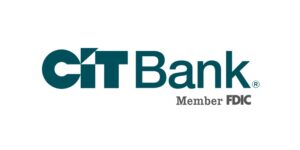 A charge card isn’t used as much as your typical credit card. They are another good payment option that you can have on hand. When you use a charge card, it’s a type of electronic payment that won’t charge you any interest. However, it has to be paid off entirely each month. With their special features, a charge card isn’t meant for everyone. Read below for more information on what a charge card is and how it works.
A charge card isn’t used as much as your typical credit card. They are another good payment option that you can have on hand. When you use a charge card, it’s a type of electronic payment that won’t charge you any interest. However, it has to be paid off entirely each month. With their special features, a charge card isn’t meant for everyone. Read below for more information on what a charge card is and how it works.
 |
 |
 |
Credit Card vs Charge Card
Charge cards and credit cards are given to consumers to pay for transactions and other services. Keep in mind that they both work differently from one another. Credit cards will normally let you make transactions to a certain spending limitation. Plus, it also gives you the choice to have a month-to-month balance. To have your account stay in good standing, you’ll have to pay the minimum payment due.
In other words, there is a high chance of you owing interest if you don’t pay your balance completely. With charge cards, it won’t give you a spending limitation or let you carry a balance from one billing cycle to another. Both a charge and credit card will have an effect on your credit score and have late fees included as well. Check out the perks that both cards have to offer:
| Card Features | Charge Card | Credit Card |
| APY | No, unless it has the option to pay over time | Yes |
| Must pay the balance in full every billing cycle | Yes, unless it lets you pay over time | No |
| Has preset spending limits | Card by card basis, normally no | Yes |
| Affects Credit Score | Yes | Yes |
| Includes late fees | Yes, it can vary between the user | Yes, can vary by card issuer |
| Has annual fee | Varies by card user | Varies by card issuer |
| Includes rewards | Depends on the card issuer | Depends on card issuer |
Charge Card Features
Checking out what a charge card has to offer is a good idea before opening an account. Some of their features include:
- No spending limits. Normally, they don’t have a present spending limitation like a credit card would. However, just cause you don’t have a limit it doesn’t mean that you’re given an unlimited spending power. Factors that have a part in this are: spending patterns, payment and credit history, and financial resources.
- Control over debt. You must pay off your balance every month, in other words, no interest. You’ll be given the power you need to understand that you will owe it all back in several weeks.
- Redeemable points towards airline miles or staying at hotels.
- Travel insurance
- Extended warranties
- Access to special event tickets
- Roadside assistance
Downsides of a Charge Card
Like any other financial product, there are some disadvantages to having a charge card. View some of the downsides of owning one below:
- Late fees are included. If you’re 30+ days late on your payment, there will be a late fee included. Additionally, there is a possibility that it can effect your credit score negatively as well.
- Annual Fees can be applied as well. This depends on who issued you the card. Some do come with an annual fee that can be pretty big. However, there are several card issuers that will waive this fee for the first year of owning the card.
- Over spending risks. Since these cards do not cut you off at a certain spending limit, there is a chance you can overspend. In other words, it builds up your debt and makes it more difficult to pay it off. Plus, they can even take away your card if you don’t pay off your balance in time.
- Less card options. With credit cards, they have a larger variety of cards compared to charge cards. The main issuers for charge cards are Diners Club and American Express. Plus, there’s a possibility that you won’t get approved unless you have a good credit score.
How it Affects Your Credit Score
Typically, charge cards won’t affect your credit score. As long as you have good financial habits you’ll be in the clear. However, if you are late on paying your balance it will damage your credit score. Plus, if you decrease your credit utilization rate, or the total available credit, it can affect your score as well.
The credit utilization rate isn’t based on charge cards like credit cards. In other words, making a big transaction on a charge card will not improve your credit utilization rate.
Conclusion
Opening a charge card can be an excellent option for you if you benefit from the factors they have to offer. However, if you just started working on your credit score, or if it’s under the minimum requirement, you might not be approved for this card. Typically, a charge card will be reserved for people who have an excellent or above average credit score.
Furthermore, since these cards don’t come with a spending limit, you won’t have to worry about carrying a balance. But, keep in mind that this makes it easier for you to overspend and build up late fees.



